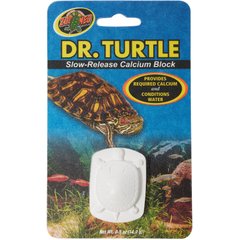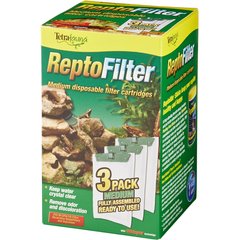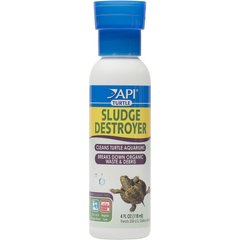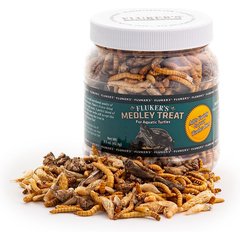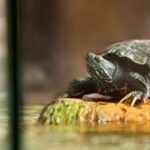10 Types of Turtles That Make the Best Pets
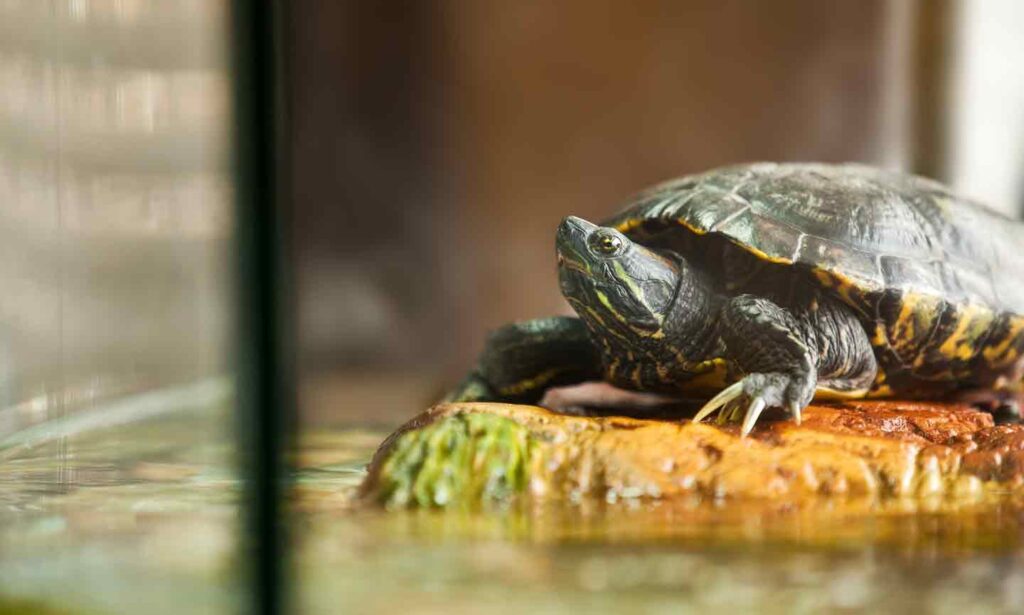
Photo by sdominick/iStock / Getty Images Plus
There’s a lot to think about before bringing a turtle into your family: how to house and handle them, plus how you’ll plan to care for them throughout their long lifespan. But the very first decision you’ll need to make is: What type of turtle should you get?
Below is a list of 10 turtles that can make great pets, along with some of the basics when it comes to their needs.
The 10 Best Pet Turtle Species
Not all turtle species make good pets, whether their housing requirements are too complicated, they grow too large, or they aren’t suited to life in captivity.
An example of a type of turtle that doesn’t make a good pet is the snapping turtle, which can inflict a powerful bite when threatened. Also, common snapping turtles (Chelydra serpentina) can grow to weigh over 30 pounds, while male alligator snapping turtles (Macrochelys temminckii) can weigh 200 pounds.
For the following list, we’ve focused only on turtles, not tortoises, even though they’re both part of the order Testudines or Chelonia. “Tortoises are turtles that are exclusively land animals. Turtles are adapted to aquatic or semi-aquatic life,” explains Susan Kelleher, DVM, exotic animal veterinarian at Broward Avian & Exotic Animal Hospital in Deerfield Beach, Florida.
Finally, no matter what type of turtle you choose, follow this advice:
- Always purchase or adopt from a reputable source.
- Never take turtles from the wild.
- Research the turtle species before bringing home a new friend. Having the right habitat, knowing feeding needs (herbivore, omnivore, carnivore) and how much your turtle will grow can influence which species is right for you.
- Check your local laws to ensure it’s legal to keep the particular turtle species as a pet in your state. Many, like the pond turtle, are endangered species because of threats like habitat loss.
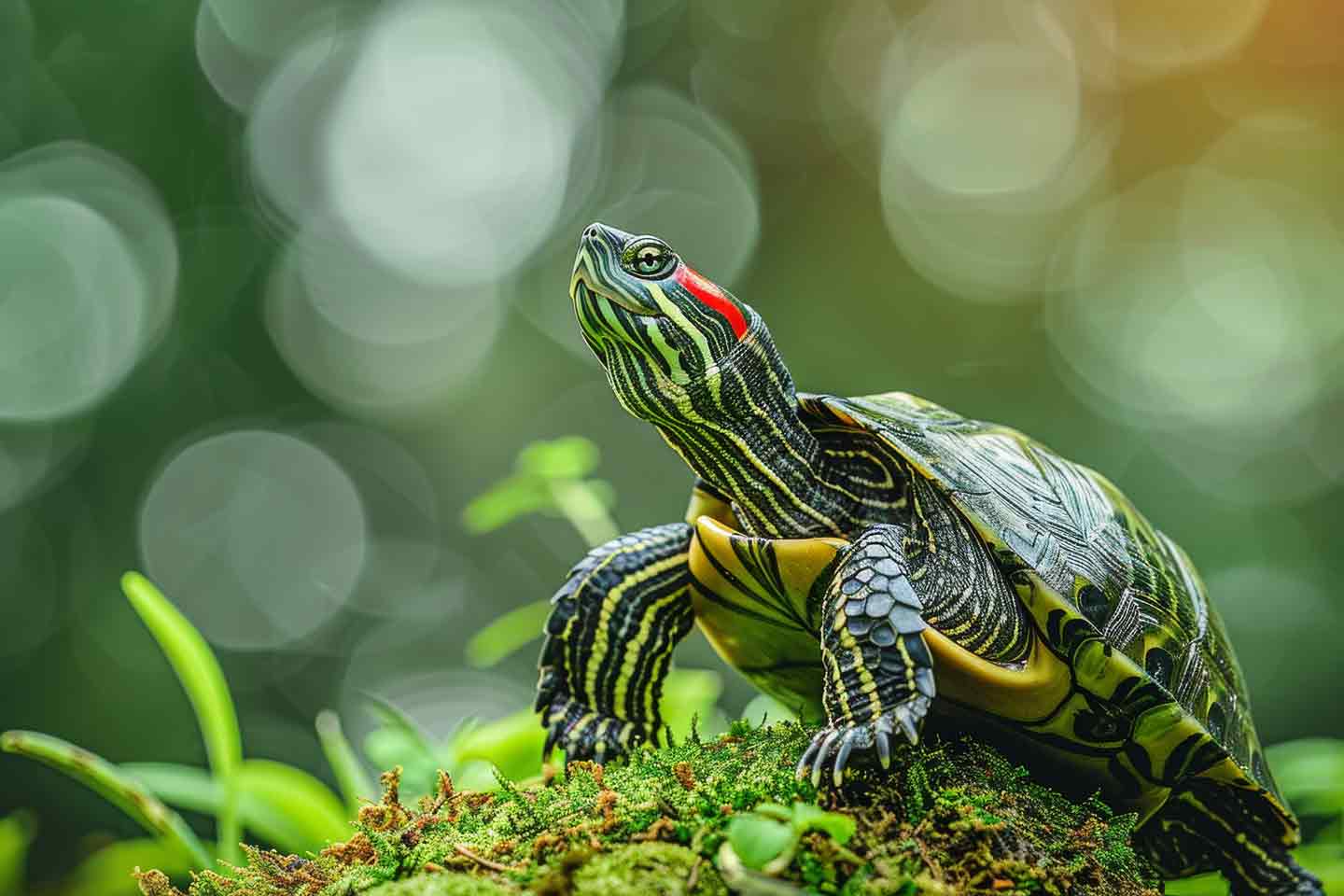
Alepatika9023/Adobe Stock
1. Red-Eared Slider
- Scientific name: Trachemys scripta elegans
- Adult size: 12 inches
- Life expectancy: 20–40 years
Also known as the red-eared terrapin, the red-eared slider is a native North American species, and a popular and hardy pet turtle who can thrive in captivity when properly cared for and fed an omnivorous diet (e.g., amphibians, insects, worms, snails, leafy greens, and vegetables; as juveniles are mainly carnivores). They’re easy to recognize, thanks to the red spot or line behind each eye.
The red-eared slider is a freshwater turtle who should be housed in a large tank (10 gallons per inch of turtle shell, at a minimum).
Recommended Products
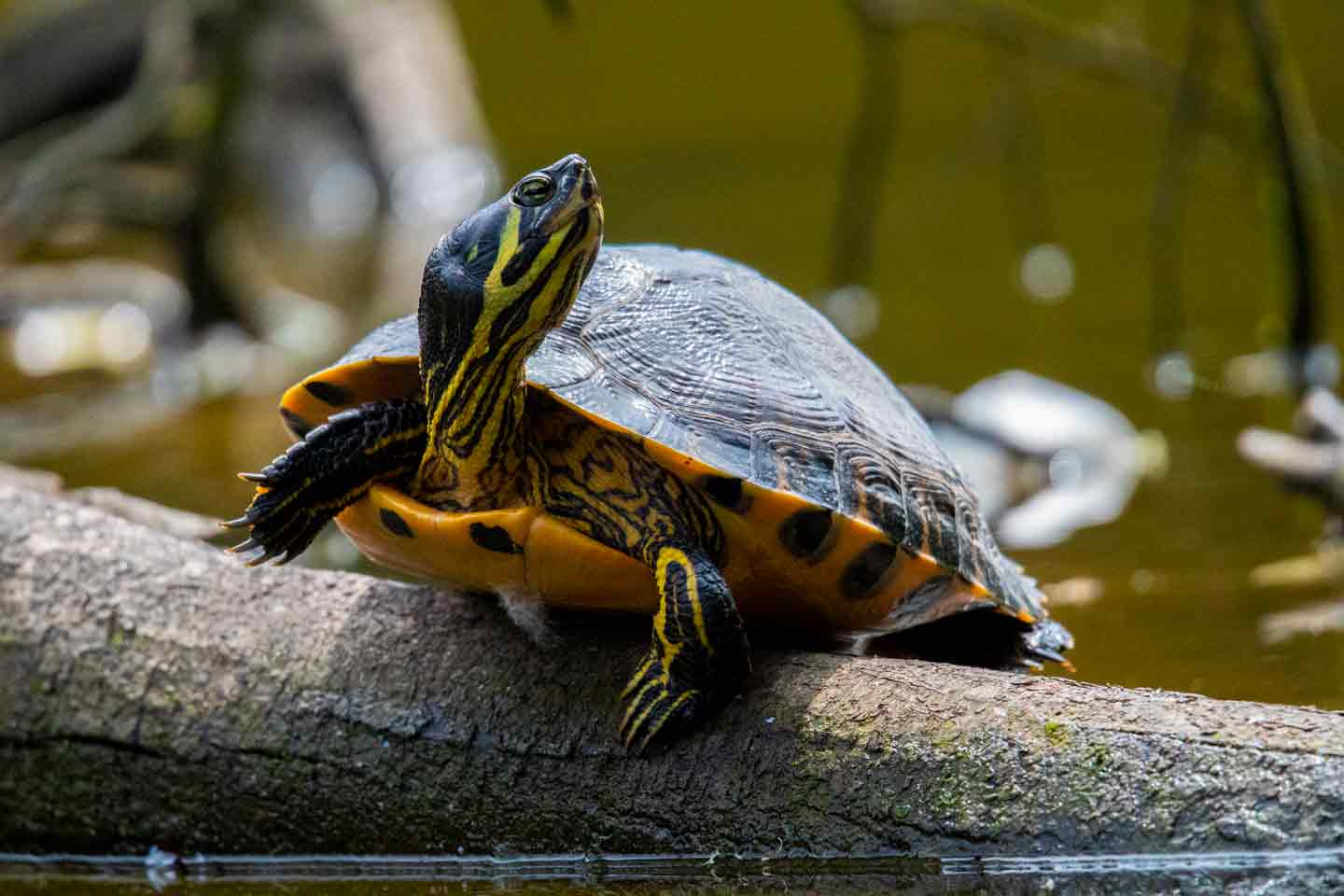
Daniel Dolan/iStock / Getty Images Plus
2. Yellow-Bellied Slider
- Scientific name: Trachemys scripta scripta
- Adult size: 12 inches
- Life expectancy: 25–40 years
The yellow-bellied slider is another omnivorous species that’s native to North America, found in several states, from Virginia to Florida, that border the Atlantic Ocean. They have a yellow plastron (lower shell), but their carapace (upper shell), legs, head, and neck can also have yellow stripes, so they’re quite striking in appearance.
In addition to being long-lived, yellow-bellied sliders require a large aquarium with clean, filtered water. Following the rule of 10 gallons per inch of turtle, you’d need a 120-gallon tank, at minimum, for one who’s full-grown.
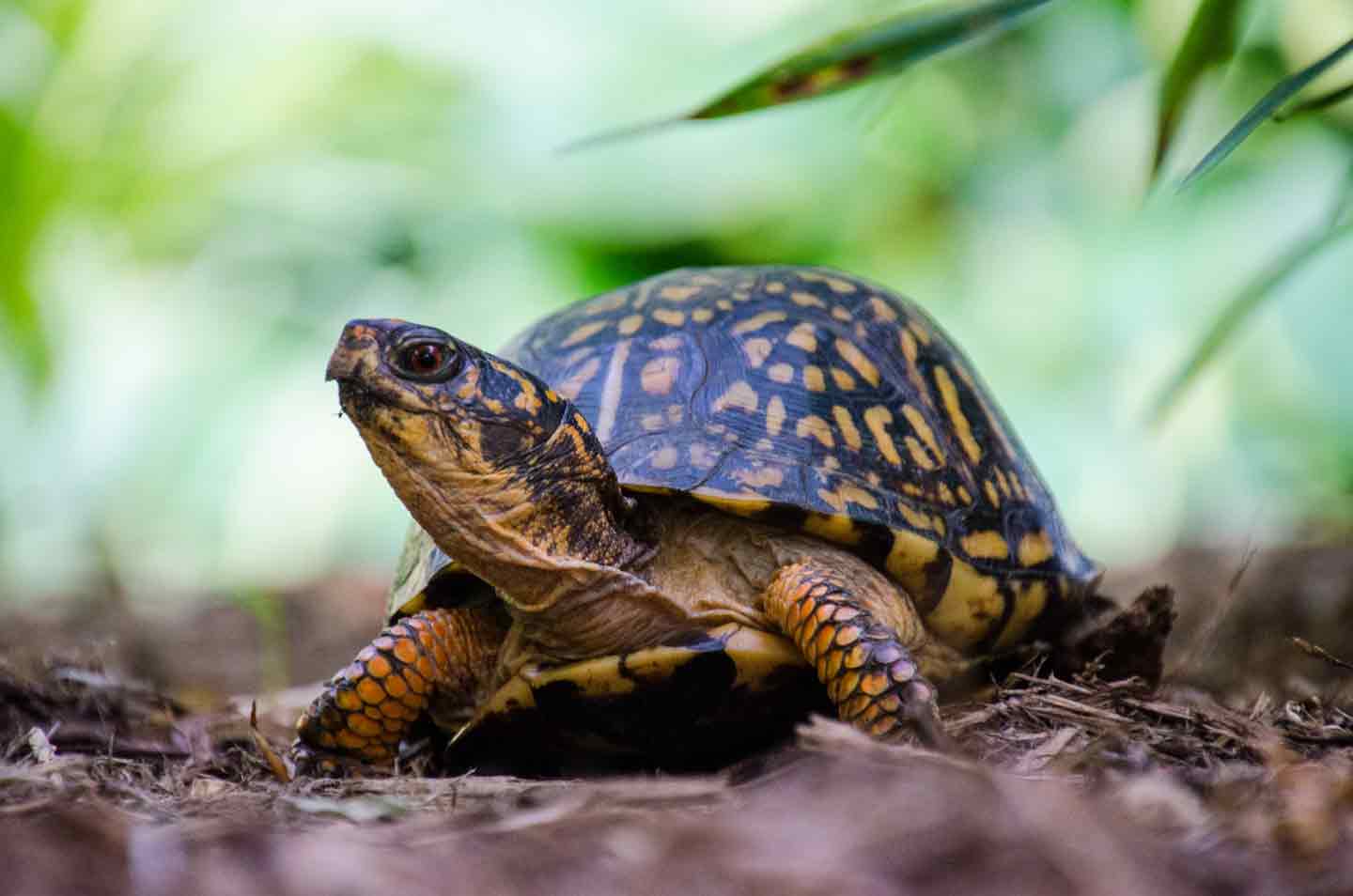
Photograph by Bernhard J Mueller-Anderson/iStock / Getty Images Plus
3. Eastern Box Turtle
- Scientific name: Terrapene carolina carolina
- Adult size: 5–6 inches
- Life expectancy: 25–100 years
“Box turtles are a fun species to have. They take a little time to warm up to humans, but once they realize that you are taking care of them, they can be really interactive,” says Ben Berriman, DVM, lead veterinarian at Banfield® Pet Hospital locations in the Phoenix, Arizona, area.
When they want to hide and protect themselves, box turtles close their shells completely with their hinged plastron—hence, their name. And eastern box turtle shells have beautiful orange or yellow markings.
These omnivorous turtles can be kept outdoors if you live in the right climate and can provide a secure enclosure—this will allow them to get natural UVA/UVB light. They aren’t aquatic turtles and spend most of their time on land and burrowing (they will dig a lot). However, they should have access to a large, shallow bowl of clean water that they can soak in and drink from.
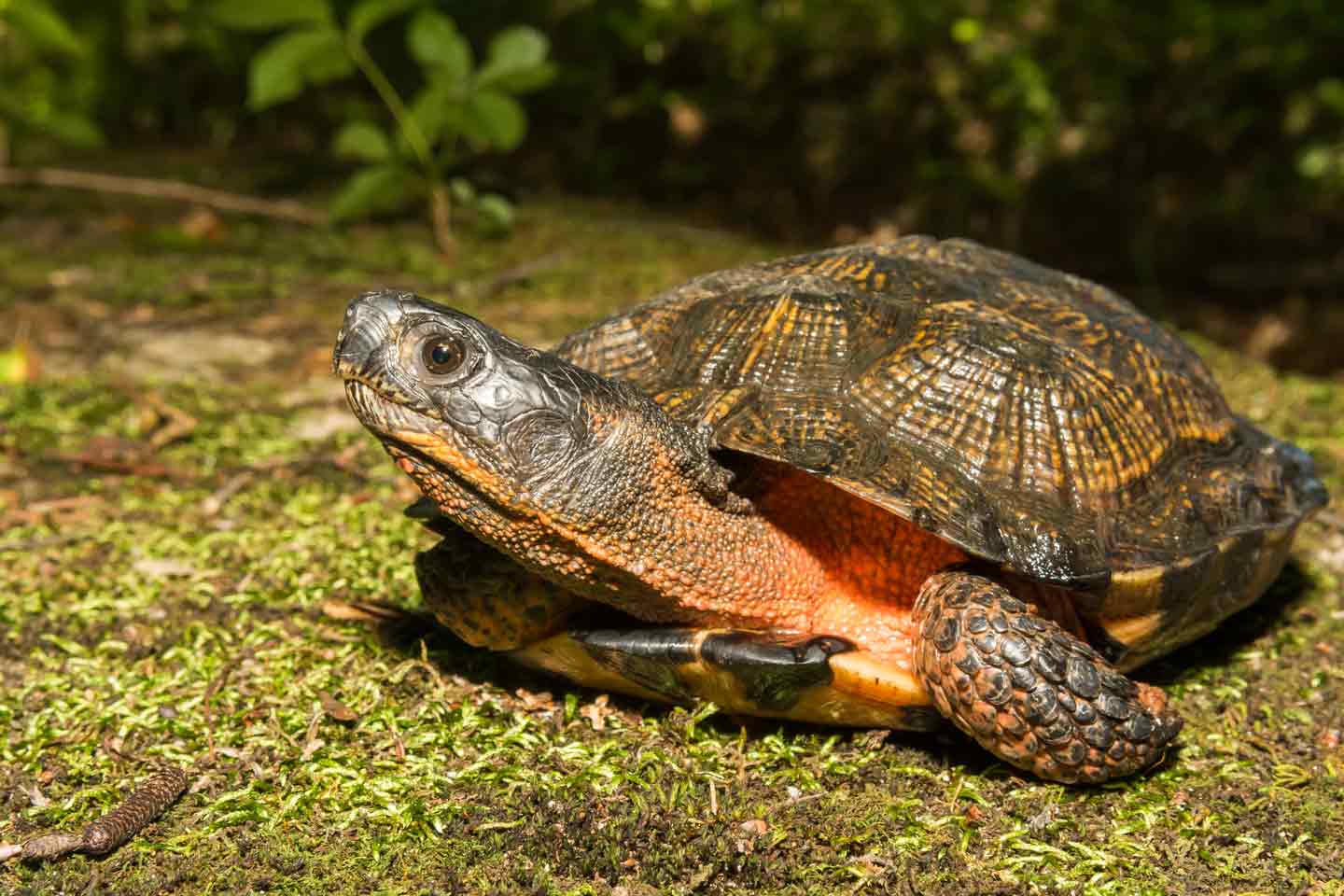
JasonOndreicka/iStock / Getty Images Plus
4. Wood Turtle
- Scientific name: Glyptemys insculpta
- Adult size: 5–9 inches
- Life expectancy: 70+ years
Wood turtles are often described as friendly and are more likely to interact with you than other turtle species. The wood turtle’s standout features include their scutes (plates or sections on the carapace), which come to points, and their central keel (a raised ridge that runs down the length of the carapace). Their body is black with contrasting orange, yellow, or red.
Wood turtles are omnivorous and semi-aquatic, spending time in the water and on land. Their enclosure is more complicated than for other species of turtles, as they should have water for swimming along with enough room to walk around and burrow into soil.
The larger the enclosure, the better, but it should be at least 48 inches long by 18 inches wide by 21 inches high. If you live in the right climate, you may be able to set up the enclosure outside.
Wood turtles are considered endangered, and are often removed from their natural habitats to be sold as pets, so it’s especially important to acquire this pet from a reputable breeder or rescue.

Martha Marks/Adobe Stock
5. Ornate Box Turtle
- Scientific name: Terrapene ornata
- Adult size: 4–7 inches
- Life expectancy: 30–40 years
The ornate box turtle is an omnivorous terrestrial (land) turtle with a beautifully striped shell. As pets, they recognize you and enjoy gentle interactions, though they don’t like being held. Although they remain smaller than some other species, they aren’t the best choice for beginner turtle keepers because they have complex requirements for space, temperature, humidity, and lighting.
These active turtles need a lot of space (roughly 16 square feet), and housing them in a secure outdoor enclosure is recommended if you live in the right climate. The enclosure should be escape-proof, as these turtles burrow. They also like to drink from and soak in shallow bowls of clean water.
Ornate box turtles have a long lifespan, living 30–40 years on average—but it’s not uncommon for them to live into their 60s or 70s. “They can even make it to 100 years,” says Dr. Kelleher.
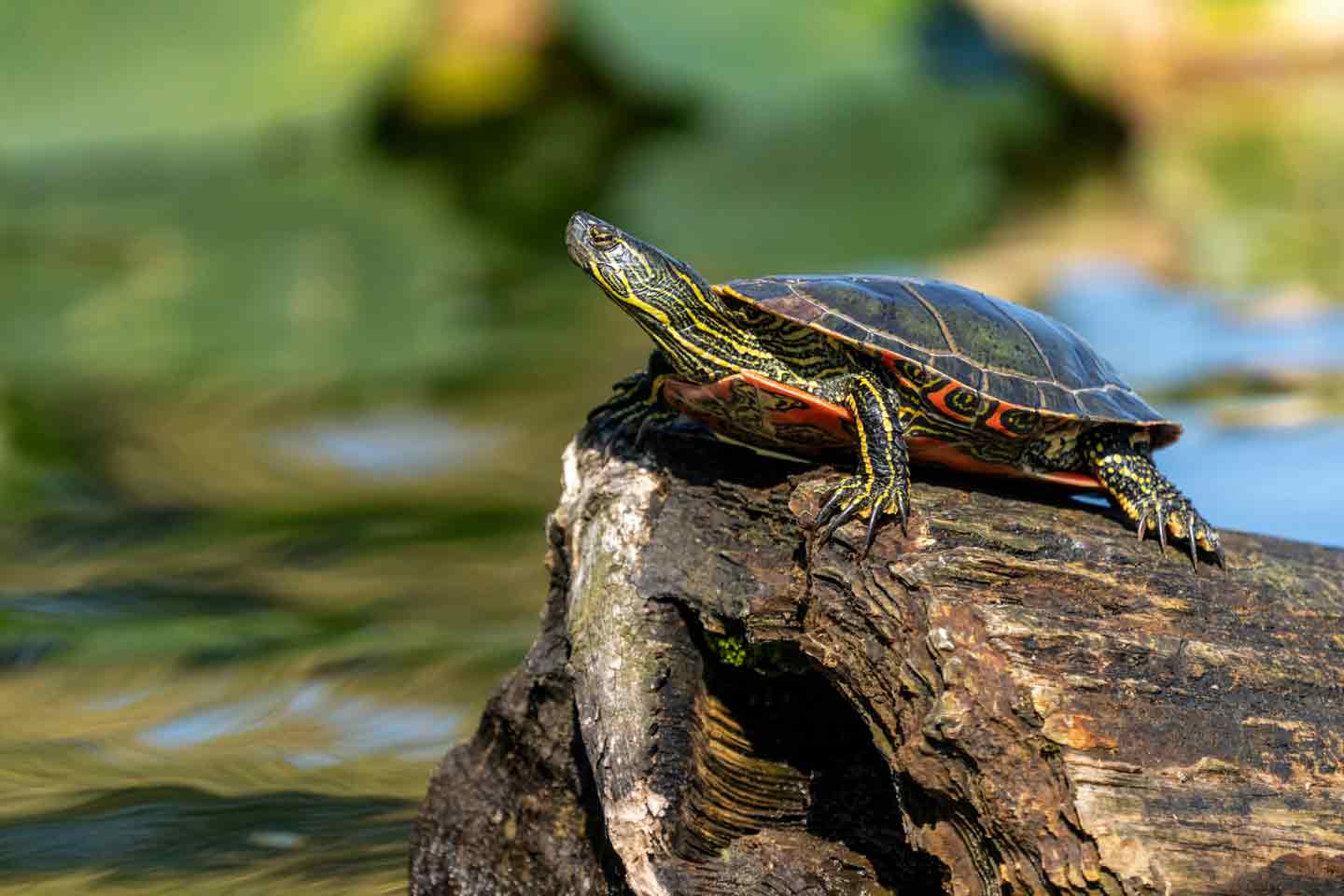
Danita Delimont/iStock / Getty Images Plus
6. Western Painted Turtle
- Scientific name: Chrysemys picta bellii
- Adult size: 6–12 inches
- Life expectancy: 25–50 years
Although the western painted turtle might not look like much from the top, once you get a look at their brightly colored plastron, you’ll see why they’re called “painted”: Their brown markings look like they’ve been painted onto a backdrop of red or orange. They also have yellow, red, or orange stripes on their head, neck, and legs.
Western painted turtles are omnivorous, hardy, active, and tame—but they don’t enjoy being handled. This turtle is an aquatic species and needs deep water for swimming, at least 12 inches deep.
“With water turtles, it’s all about water quality and proper food,” says Dr. Kelleher.
With the right conditions, you can keep your western painted turtle in an outdoor pond environment. This species also needs supplemental Vitamin D3 (UVB light source) if they are kept inside most of the time.

Elena/iStock / Getty Images Plus
7. Spotted Turtle
- Scientific name: Clemmys guttata
- Adult size: 3–5 inches
- Life expectancy: 50+ years
The spotted turtle has a distinctive look, with a black carapace that features bright yellow spots. Although they don’t like being handled, they can make good pets for those who simply enjoy observing their turtle. They are fun to watch and often play in their tanks (floating on rafts and playing with shells).
Spotted turtles spend time on land and in water, but they aren’t the best swimmers. Their enclosure should have enough room for them to walk around, along with clean, shallow water.
You can house more than one spotted turtle in the same enclosure, as long as it’s large enough. For example, a 100-gallon aquarium can give two spotted turtles enough room.
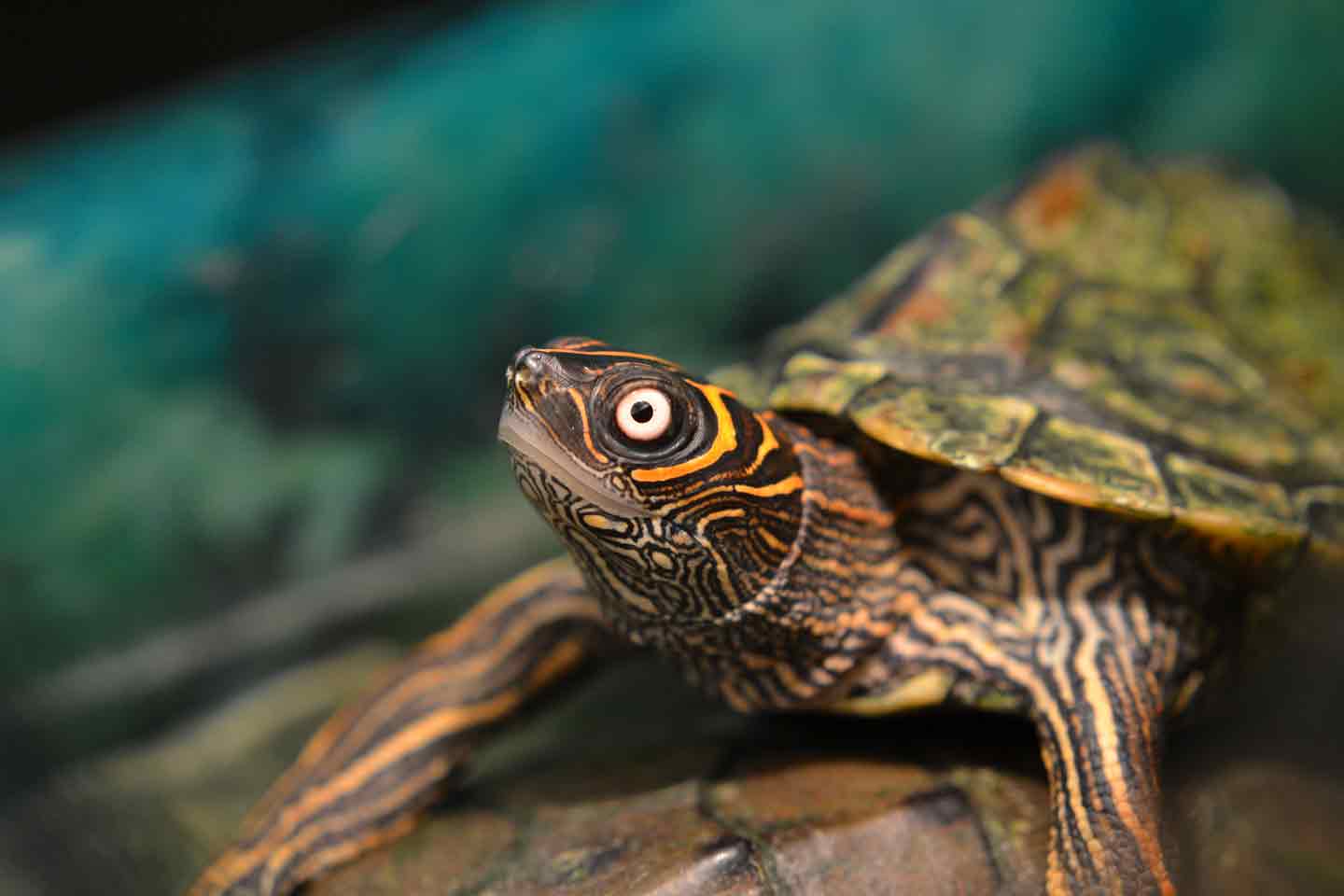
Martin/Adobe Stock
8. Mississippi Map Turtle
- Scientific name: Graptemys pseudogeographica kohni
- Adult size: 5–10 inches
- Life expectancy: 15–30+ years
Mississippi map turtles have a unique carapace, with a keel that runs along the center of it. The back of the carapace has serrated scales, like a saw. Yellow markings, including a yellow crescent by each eye, are on the head and neck. They are unique in appearance, but easily become stressed and are a bit nervous in general.
Looking for a smaller turtle who requires a smaller enclosure? Male Mississippi map turtles grow to just 3.5–5 inches, while females are typically 6–10 inches long as adults.
These turtles love to swim, so they need deep water. Their water requirements are very specific (pH, temperature, very well filtered), so they are best kept by an experienced pet parent.
In addition to clean, warm water and a hot basking spot, Mississippi map turtles need an omnivorous diet.
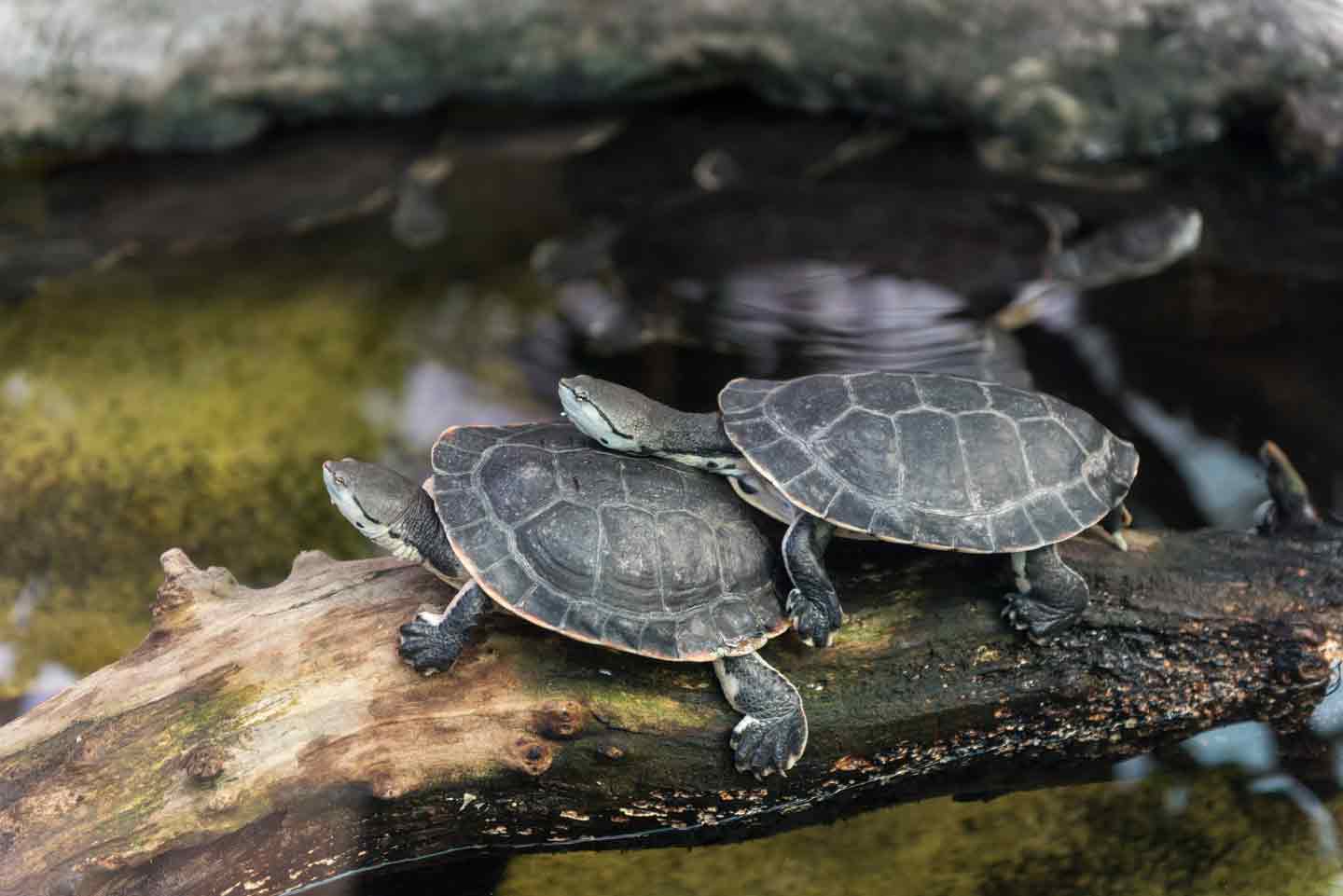
ivanaculafic/Adobe Stock
9. West African Mud Turtle
- Scientific name: Pelusios castaneus
- Adult size: 7–12 inches
- Life expectancy: 50 years
The West African mud turtle is also known as the West African side-necked turtle because they draw their head and long neck under their shell sideways, rather than straight back into their shell like other turtles. In addition to that unique feature, they also have what looks like an adorable smile.
You can house a West African mud turtle outdoors if you live in a suitable climate and can provide a secure, escape-proof enclosure; these are very active animals. Indoors, you can use a tank that provides warm water and a basking area. They’re generally hardy, so once you have the right setup, they can thrive.
West African mud turtles are omnivores who can eat turtle pellets, meat, leafy greens, fish, snails, worms, and insects.
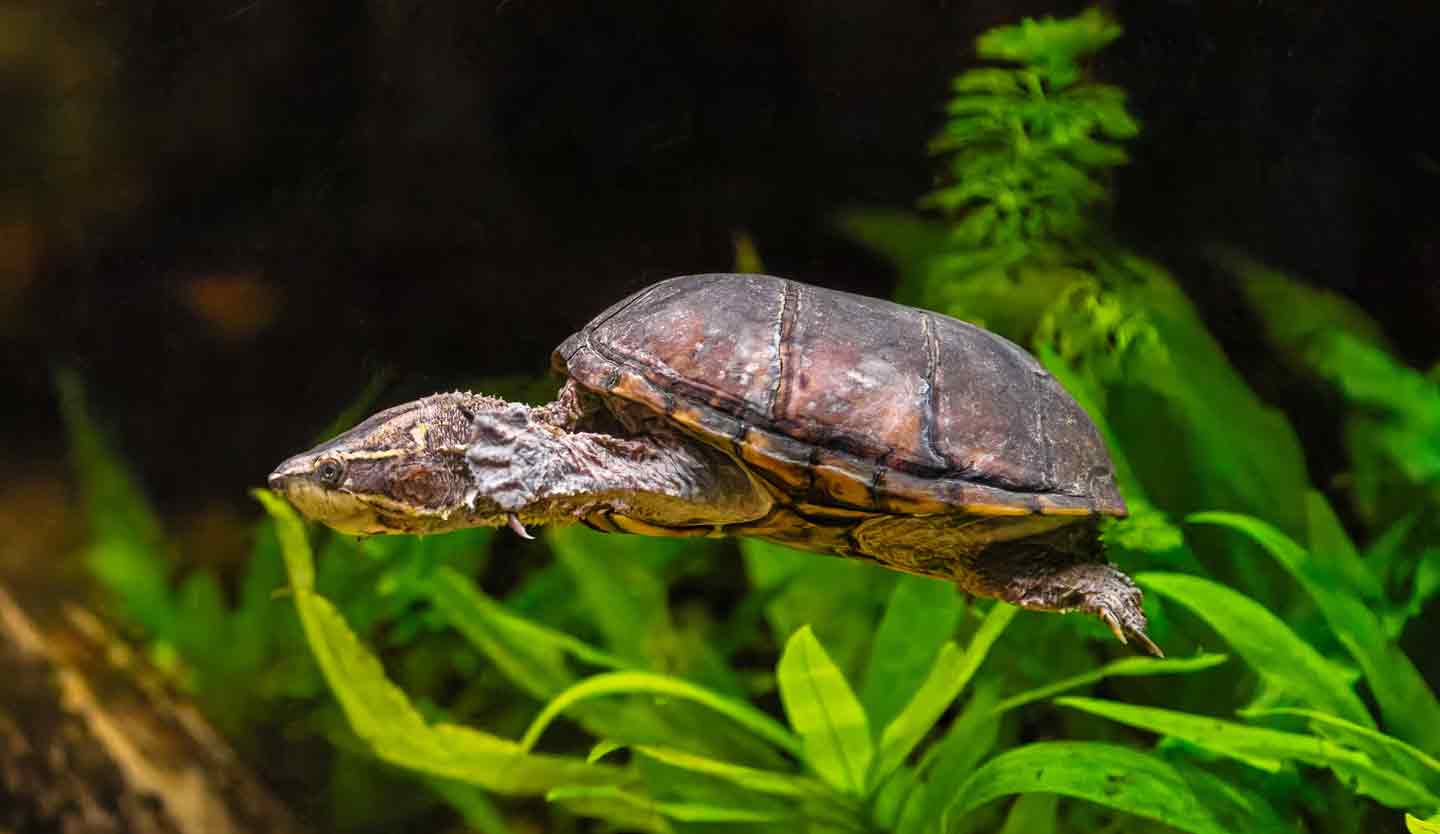
Henner Damke/Adobe Stock
10. Common Musk Turtle
- Scientific name: Sternotherus odoratus
- Adult size: 4–5 inches
- Life expectancy: 50 years
The common musk turtle is a good turtle for beginners because they’re small and hardy, and their housing and care requirements aren’t complicated.
Also known as the stinkpot turtle, the musk turtle releases an offensive odor when they’re threatened or scared. Their other distinctive features include a pointed snout and two yellow stripes on each side of their head. They also might bite if they get stressed, so they shouldn’t be handled unless necessary.
If you’re housing a single musk turtle, a 40- to 50-gallon tank can give them enough room. They spend most of their time in the water, which should have a powerful filtration system and be heated to 80 degrees Fahrenheit. You’ll also need to set up a basking area (100 degrees Fahrenheit).
Common musk turtles are mostly carnivorous, eating a variety of foods like snails, shrimp, fish, insects, algae, aquatic plants, and turtle pellets.
